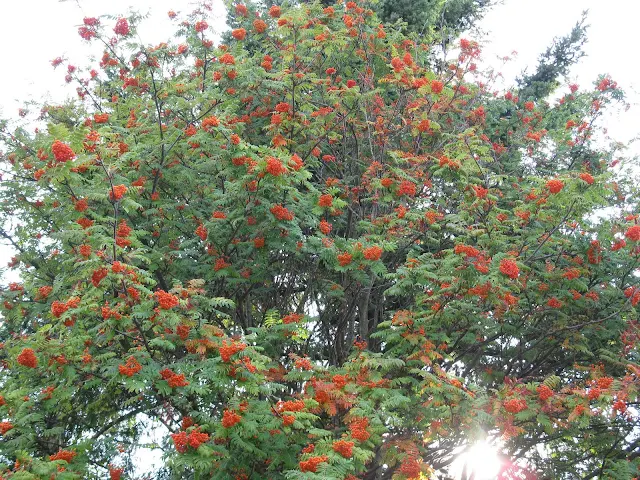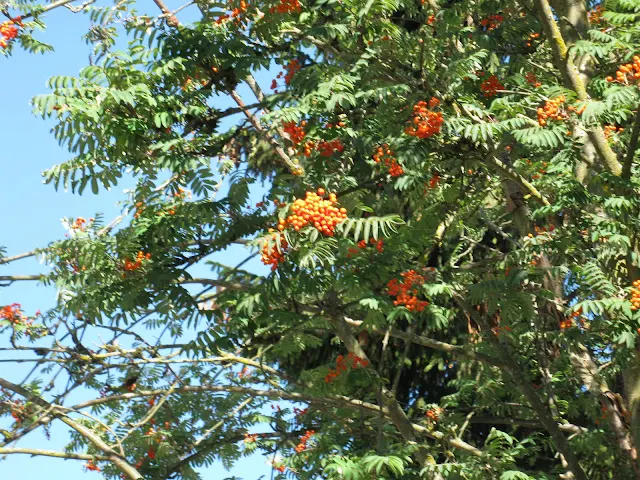 |
| Painting by John Hammond, 1905; Hammond was based in Sackville, New Brunswick |
Looking into Trees, by Douglas Lochhead
(Sybertooth Inc., Sackville, New Brunswick, 2009)
Review by Stephen Morrissey
Go wind, go green, go move it
into great shiftings
“looking into trees”
Douglas Lochhead’s extensive body of work shows a lifelong dedication, passion, and commitment to poetry. The poems in Lochhead’s new book, Looking into Trees, as one finds in his other books, are pared down and concise. As the title suggests, we may look into trees, but what do “trees” suggest, what do they mean to the poet and to the reader, what is our meditation on trees? As an archetype “trees” have always interested me, beginning with my own first book of poems, The Trees of Unknowing (Vehicule Press, Montreal, 1978). First, one thinks of the roots of trees, of being rooted in the ground of our existence, the physical, the earth from which life generates. There is also another aspect to trees, there are the trees’ branches that reach into the sky, into the heavens above us. Trees, then, suggest both the physical world and the spiritual realm. Trees also suggest a meeting of the two worlds, the material and the spiritual, the human and the divine.
Indeed, Looking into Trees is a wonderful and evocative title. It is not looking at trees, which is a passive act, but looking into trees which suggests an investigation— “I will look into the situation”—this also suggests taking care of a situation that requires some open-ended study.
Four poems in Lochhead’s book stand out, they are those entitled “Exhibits for the Lord,” numbered one to four. These poems give the reader a portal through which to enter into both the poetic and spiritual experience. This perception is an awareness of the presence of God in Lochhead`s daily life. When is God present to us? In the poems, God is present all the time. In the first poem, the “exhibits” are in the form of a morning and evening walk and seeing flowers growing in people’s gardens, these are all “exhibits for the Lord.” There is an ambiguity in this: are they exhibits or evidence for the presence of God, or are they what we present to God as an exhibit, or evidence, of our belief in Him? The second poem’s exhibit is that of the presence of children. In this poem we move from the world of experience to the uncorrupted world of a child’s innocence, and this is a cause for prayer. Prayer in this poem is not the ostentatious exhibition of ego that Jesus warned against, but spontaneous prayer that is a conversation with God. I am told that Einstein did not believe in God, but he nevertheless engaged in an on-going conversation with God. Prayer, then, is a conversation with the Divine.
An experience of God, it seems to me, comes uninvited, unannounced, in God’s own time. We wander, as I have done, in the exile of a self-made desert until we return to God, as I have also done. Exhibit three presents this to us. It is sometimes enjoyable to read a detective novel, to be distracted when we can`t sleep. This, however, might also be the time when God makes His presence felt; Lochhead writes, “... words took me up saying REJOICE/ and it was God’s day again…” The fourth exhibit reminds us that in our daily living—the “Holy Living,” and “the slide rule possibility of Holy dying”—there is the constant presence of rejoicing, for one who is living in the presence of God is also rejoicing that God is in his life.
The reproductions of paintings in Looking into Trees, by Kenneth Lochhead (Douglas Lochhead’s brother), who is an eminent visual artist in his own right, enhance the poems in the book. The paintings present a similar vision of life as one finds in the poems, and they show that, as I have always believed, poetry and visual art have more in common than poetry and other genres of written expression, for instance the novel.
Notes:
1. My review of Douglas Lochhead’s Upper Cape Poems (Goose Lane Editions, Fredericton, 1989) appeared in the Antigonish Review, nos. 81-82, spring-summer 1990.
2. I also recommend these other books by Douglas Lochhead:
Collected Poems: The Full Furnace (1975)
A & E (1980)
The Panic Field (1984)
The Tiger in the Skull, New and Selected Poems 1959 – 1985 (1986)
Upper Cape Poems (1989)

.JPG)
.JPG)
.JPG)
.JPG)






























